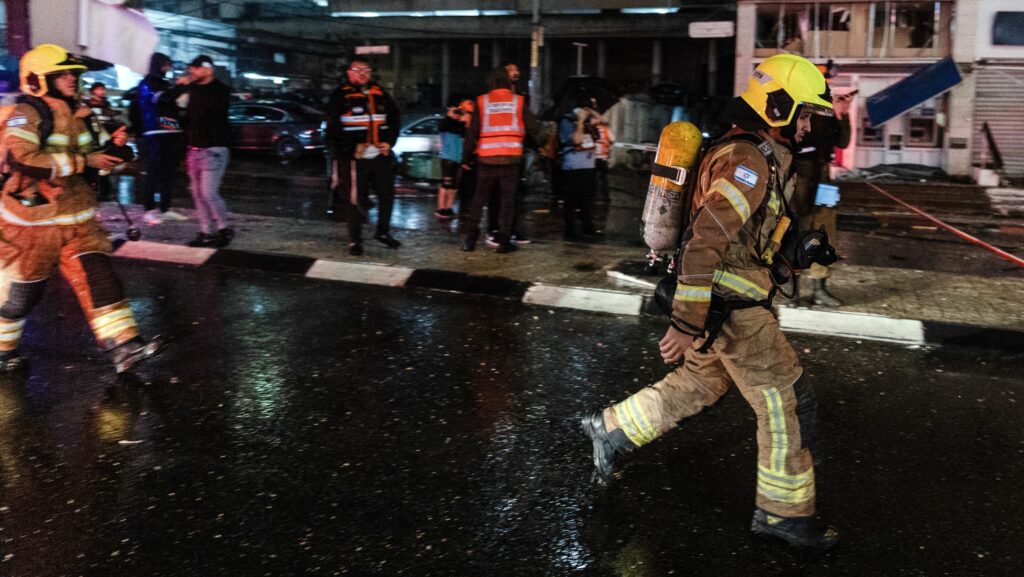BEIRUT – Lebanon and the militant group Hezbollah have agreed to a U.S. cease-fire proposal and made several comments on its contents, a senior Lebanese official told Reuters on Monday, saying the effort would end weeks of fighting and Israeli shelling. He described it as the most serious incident to date.
Lebanon’s Health Ministry said on Monday that an Israeli airstrike killed five people in central Beirut, the second day in a row that Israel hit targets in the capital as it advances operations against Iranian-backed militants.
Smoke was seen rising from the strike in the densely populated Zukak al-Brat district near central Beirut, where the Lebanese government is headquartered. According to the ministry, two people went missing after the strike and another 31 were injured.
Israel has stepped up artillery fire in and around the Lebanese capital over the past week, and Hezbollah continues to fire missiles at Israel despite progress in U.S.-led diplomacy to halt fighting.
Read more: Hezbollah media chief killed in Israel’s Beirut attack, Hezbollah confirms his death
A diplomat familiar with the talks warned that details still needed to be worked out and that a final deal could survive.
US special envoy Amos Hochstein is expected to arrive in Beirut soon, US officials told Reuters.
Israel has dealt heavy blows to Hezbollah since late September, killing leader Sayyed Hassan Nasrallah, carrying out airstrikes across large swathes of Lebanon, and sending troops into southern Lebanon.
Rocket sirens rang out across Tel Aviv and much of central Israel on Monday night.
Read more: Iran supports Lebanon in ceasefire talks, aims to end ‘issue’
The Israeli military said debris from the intercepted missile hit a main street on the outskirts of Tel Aviv and that it was still investigating. Israeli emergency services said six people were injured in the explosion, including a 54-year-old woman in critical condition.
Hezbollah said in a statement that it had launched a volley of drone strikes against “important military positions” in Tel Aviv.
Earlier, an Israeli woman was killed when a rocket crashed into a building in the northern city of Shfaram, Israeli emergency services said. The Israeli military said about five projectiles were fired from Lebanon.
Since Israel launched its offensive in September, most airstrikes in the Beirut area have targeted Hezbollah strongholds in the southern suburbs.
But on Sunday, Israel attacked targets within Beirut’s city limits for the first time in more than five weeks, killing 10 people in two attacks, including a top Hezbollah media official.
Israel launched the attack after nearly a year of cross-border hostilities with Hezbollah. Its stated goal is to dismantle Hezbollah’s capabilities and secure the return of tens of thousands of Israelis who have fled the north.
Hezbollah has been firing rockets at Israel in solidarity with its ally Hamas since the Gaza war began more than a year ago. More than 1 million people have been forced to flee their homes in Lebanon in the past eight weeks due to the Israeli campaign.
World powers insist that any ceasefire must be based on UN Security Council Resolution 1701, which ended the 2006 war between Israel and Hezbollah. Its terms require Hezbollah to move weapons and fighters north of the Litani River, about 30 kilometers (20 miles) north of the Israeli border.
Ceasefire conditions
Hochstein, who has held several fruitless ceasefire negotiations over the past year, expressed hope last week that a ceasefire agreement could be reached.
Ali Hassan Khalil, an aide to Lebanese parliament speaker Navi Berri, said Lebanon submitted a written response to the US ambassador to Lebanon on Monday.
Read more: State Department asks Americans to ‘depart Lebanon now’ in new advisory
Hezbollah, a heavily armed movement backed by Iran, supported Berri’s efforts to negotiate a ceasefire, a longtime ally.
“All the comments we have submitted confirm that we comply precisely with (United Nations) Resolution 1701 with all its provisions,” Khalil said.
Khalil said the initiative’s success now rests on Israel. If Israel doesn’t want a solution, “100 problems could arise,” he added.

There was no immediate comment from Israel on the latest assessment of Lebanon’s diplomacy.
Labor Minister Mustafa Bayram said early Monday after meeting with Berri that he felt there was a positive atmosphere for diplomacy, but warned against counting chickens before they hatch.
According to Lebanese authorities, Israeli operations have killed 3,481 people in Lebanon since the start of the fighting, most since late September. This figure does not distinguish between combatants and civilians.
According to Israeli statistics, Hezbollah attacks have killed 43 civilians in northern Israel and the Israeli-occupied Golan Heights, and 73 soldiers have been killed in attacks in northern Israel and the Golan Heights and fighting in southern Lebanon.



